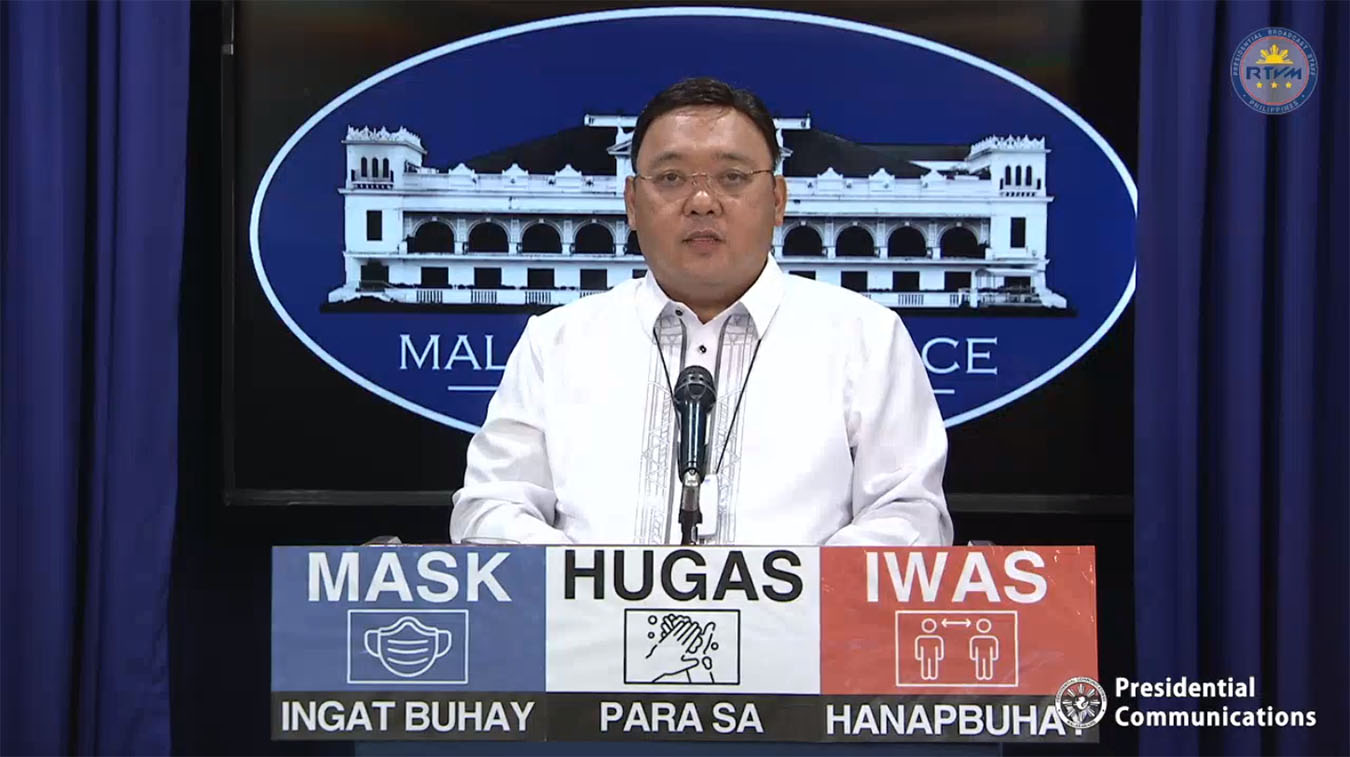
With typhoon Quinta bringing rains over Luzon and Visayas, the Palace assured the public that the government is well-prepared for the rainy season during this time of the COVID-19 pandemic.
Presidential Spokesperson Secretary Harry Roque Jr, during a press briefing on October 26, presented some of the salient points of the National Disaster Risk Reduction and Management Council’s (NDRRMC) Memorandum No. 54 on COVID-19 Preparedness Measures for Rainy Season, which was released as early as May of this year.
“Kasama sa ginawang pagpa-plano ng pamahalaan ang paghahanda sa tag-ulan sa panahon ng pandemya… Ilan sa mga salient points ay ang preparedness planning ng ating mga lokal na pamahalaan,” said Secretary Roque.
According to the NDRRMC memorandum, preparedness planning of local government units (LGUs) should be science- and evidenced-based. LGUs need to conduct pre-disaster risk assessment and consult relevant warning agencies to know the LGU’s imminent risks. LGUs are also advised to anticipate and prepare for the impacts of the rainy season to vital facilities like hospitals, clinics, LGU offices, and power and water services.
Memorandum No. 54 also mentions that through the Bayanihan to Heal as One Act, the 30 percent cap on the amount appropriated for the Quick Response Fund is lifted.
LGUs are also advised to increase their capability to stockpile on food and non-food items for response operations during the rainy season. Accordingly, the Department of Social Welfare and Development (DSWD) has assured of the availability of stockpiles.
“As of October 25, 2020 ang DSWD po ay mayroon na pong stockpiles, kasama na rito ang food packs at standby funds amounting to more than ₱890-Million,” said Sec. Roque. These stockpiles are in the DSWD Central Office and in its various Field Offices.
On possible evacuations during this COVID-19 pandemic, LGUs are directed to assess and review community demographics and identify areas that are facing low, moderate, and high risk from COVID-19. LGUs need to ensure as well that proper physical distancing is observed in evacuation centers, and that priority is given to vulnerable citizens like the elderly, pregnant women, children, persons with disabilities, and those with underlying medical/health conditions.
“Kinakailangan pre-identified at prepared ang mga evacuation centers na nasa management ng mga LGUs, at yun nga pong may symptoms no matter how mild, should be isolated from the rest of the population,” Sec. Roque stressed.
The NDRRMC also asked LGUs to have an inventory of evacuation centers that are not listed as quarantine facilities. Local DRRM Councils are advised to explore incident management options that are suited for the on-going COVID-19 operations and in anticipation of the rainy season.
Meanwhile, to ensure the safety of responders, they are advised to use personal protective equipment (PPEs) and other protective apparel when conducting response operations. They are also enjoined to observe other health procedures like temperature and health screening, wearing of face masks, and cleaning and disinfection of facilities.
Likewise, COVID-19 mitigation measures must be observed in the distribution of relief goods and in the management of evacuation centers. As mass gatherings are still prohibited, LGUs are advised to designate distribution areas with appropriate safety markings.
On another matter, Dr. Lulu Bravo, Professor Emeritus of the University of the Philippines College of Medicine, discussed how vaccine trials are conducted. In the same press briefing, Dr. Bravo, who is current President and Executive Director of the Philippine Foundation for Vaccination said that there are more than 200 vaccines in development right now worldwide. Of this number, there are now 10 vaccines in Phase III clinical trials and 6 vaccines that are being given for emergency or limited use, specifically in China and Russia.
Dr. Bravo assured that the Philippines already has standard procedures in place for conducting clinical trials and that safety procedures are in place to ensure the safety of clinical trial volunteers. She also advised that even with the availability of a vaccine, people should still wear masks, wash hands, and practice physical distancing until we are assured of the vaccine’s efficacy and safety. ### OPS-PCOO

